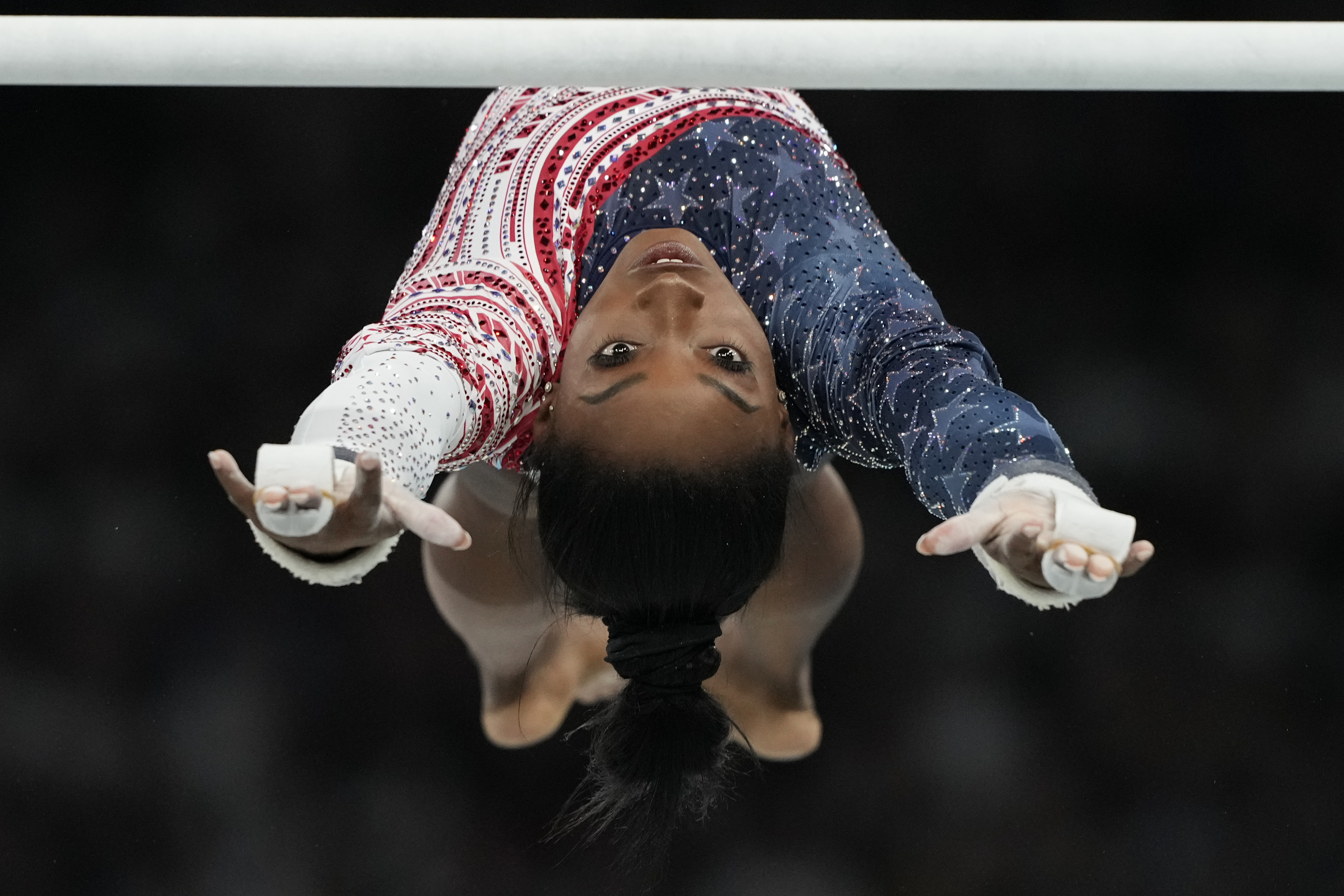One of the stars of the 2024 Paris Olympics is Simone Biles (27). The most decorated gymnast in history made a grand comeback at the Bercy Arena, where she won the first gold medal with the U.S. team. After withdrawing from Tokyo 2020 due to mental health issues and being on a two-year hiatus, the athlete has returned to the top of her game in the categories she competes in.
Simone Biles' comeback is undoubtedly one of the most talked-about topics of these Olympic Games. Personalities like Lady Gaga, Tom Cruise, Ariana Grande, and Nicole Kidman have not missed her performances, and since her first appearance on Sunday, they have been supporting the gymnast from the stands, joining the applause of the Olympic audience eagerly awaiting one of the greatest in the history of sports.
This Tuesday, after her spectacular performance, Biles showed her most special smile to the world, but her gaze was fixed on the stands, specifically on one person: her husband Jonathan Owens. The American football player traveled from Chicago to Paris, after receiving special permission from his club, to support the gymnast in her highly anticipated participation.
While recovering from her mental health issues, Biles got married to the Chicago Bears player, whom she met in 2020 through the VIP dating app, Raya. The ceremony took place in Cabo San Lucas, Mexico, with 144 guests in attendance.
But her husband is not the only one supporting her from the stands. During the competition, the athlete has had the support of her parents, Ronald and Nellie Biles, who were visibly emotional during her performance. It was especially her mother who never stopped cheering on the champion, whether by waving the American flag or embracing her son-in-law.
In Biles' return, there is another key figure, Beacon. A four-year-old Golden Retriever who has gone viral for providing emotional support to Team USA. The mascot has accompanied the gymnasts after Biles' withdrawal in Tokyo 2020 due to mental health issues, a turning point for the team, which adopted various initiatives to improve the emotional well-being of the athletes.
Mental health in high-performance athletes is a topic that has gained prominence in recent times. It was precisely Simone Biles who brought the issue to the forefront during her time in Tokyo, when she withdrew from the Olympic Games to focus on her recovery. Her journey to becoming the best gymnast of the 21st century was not easy; the athlete's life has been marked by her mother's addictions, a brother imprisoned for homicide, and the abuses of doctor Larry Nassar.
Biles had a challenging childhood due to her mother's struggles with drugs, leading her and her three siblings to go through different homes until the athlete was adopted by her maternal grandparents at the age of six. This meant moving from her native Ohio to Houston. There, during a school field trip to a gym, she began imitating other athletes, and coaches noticed her exceptional abilities. Days later, her family received a letter encouraging them to enroll her in a gymnastics institute. The rest is history.
In addition to her victories, Biles' sports career has stood out for her activism in causes like the #MeToo movement and for speaking out against Larry Nassar, the doctor for the U.S. gymnastics team who sexually abused her and hundreds of other girls and teenagers. The Ohio native, who stated she had experienced "inappropriate touching" by the doctor, stepped up for her teammates and other survivors.
The Nassar case is not the only reason Biles made headlines outside of sports. Her brother Tevin Biles-Thomas was accused in 2019 of a triple murder in Ohio; he remained in jail awaiting trial because no one paid his one million dollar bail, not even his sister, Simone. The gymnast chose to stay out of the situation and expressed her condolences to the victims' families.
While awaiting her upcoming performances, the gymnast has launched a docureality called Simone Biles, Vuelve a Volar (Simone Biles, Soar Again), which narrates her personal life, the journey to improve her mental health, and the training leading up to her highly anticipated return to the Olympic Games, showing that to be the best, it is important to know when to pause.
